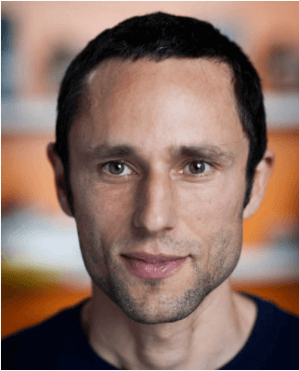
This Fall, Charles Eisenstein will be one of a number of featured speakers and artists participating in Esalen’s Benefit Weekend celebration. Charles is author of Sacred Economics and The More Beautiful World Our Hearts Know Is Possible and has taught workshops at Esalen, including participating in an upcoming Conversations on the Edge in September. His work focuses on themes of civilization, consciousness, money, and human cultural evolution. Charles shared with us news of his current work, including exploring the space between humanity’s old story of separation and what’s next.
eNews: We are excited to welcome you back to Esalen this October. Do you remember your first impression or experience of Esalen?
Eisenstein: Honestly, my first impression was of an institution trying to find its way, holding its origins and early history sacred while negotiating the realities of interfacing with the "real world." Such places enjoy a bubble of protection in their early days, within which they can grow. But at some point they go through a coming-of-age initiatory ordeal. My impression was that Esalen is going through that, facing questions of "Why are we here?" "What are we and what do we want to be?" I thought, "It is OK not to know. This land is special. It will carry you. Trust the process."
eNews: You write about your late 20s and experiencing a period of crisis and searching. What can you share of that experience – the dissolving of one world and the birthing of another?
Eisenstein: Gosh, it wasn't just my late 20s. It is a process that comes back again and again. The unraveling reaches one level, then there is a rest, and then it goes deeper. Programs of behavior and thought that were wholly unconscious rise to the surface through crisis. Do I then easily let go of them? No, usually I cling with all my might until circumstances force me to surrender. So don't look to me as the guy who went through his transformation a long time ago and is now in a more exalted and enlightened state than you are. I'm still in the thick of it.
eNews: On a larger scale, you talk about humanity in need of taking the Next Step. What does that look like?
Eisenstein: I don't know what it looks like. I see the "old story" (the story of separation) falling apart all around us. The story of the separate self, humanity separate from nature, the story of control, the story of scarcity... and everything built on it is crumbling. We are entering a "space between stories" in which the old answers, the old narratives, the old theories of change and maps of progress no longer serve. From that empty space, the Next Step will emerge. I don't know what it is, although I can see bits and pieces of what the world could be, in everything we call holistic, alternative, etc.
eNews: Tell us more about your upcoming project, The Revolution Is Love. How will that tie into your focus on the environment?
Eisenstein: I'm not sure if that is going to be the title after all. My starting point for this book is climate change. I think the standard narrative of climate change is severely flawed; in fact, it will lead us to more of the same, tremendous effort to very little effect. I'll give you just one snippet: the argument that we should do something about climate change or really bad things are going to happen to us. Well, if we need to rely on that argument, it is already too late. Imagine if you asked me, "Why should I feed and clothe my child?" and I said, "If you don't, you'll be arrested for neglect. Really bad things will happen to you." If you have to ask the question, there is already a problem. I think we need to look at that. What separates us from loving Earth and everything on it so much, that ecocidal action is unthinkable?
eNews: In your travels and public speaking, what surprises you most about those you meet? What comforts you?
Eisenstein: What gives me the most hope is the beauty, intelligence, caring, and courage of the people I meet, and especially the young people, who seem to be born into a level of consciousness that my generation had to struggle for decades to embody just partially.
eNews: Can you share with us a preview of what you’ll be addressing during your Esalen visit in October?
Eisenstein: I'll probably talk about some of the topics I've just discussed, but I will tune into the conversations and questions that are in the space – the zeitgeist of the event – and speak to that. The basic framing, though, will be the transition in our stories.
Learn more about this year’s Benefit Weekend.
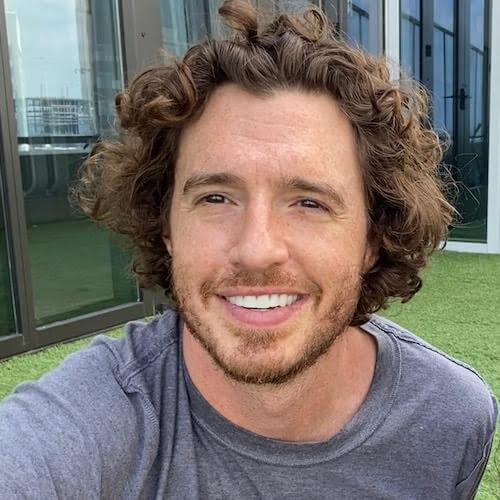
“Remembering to be as self compassionate as I can and praying to the divine that we're all a part of.”
–Aaron
“Prayer, reading, meditation, walking.”
–Karen
“Erratically — which is an ongoing stream of practice to find peace.”
–Charles
“Try on a daily basis to be kind to myself and to realize that making mistakes is a part of the human condition. Learning from our mistakes is a journey. But it starts with compassion and caring. First for oneself.”
–Steve
“Physically: aerobic exercise, volleyball, ice hockey, cycling, sailing. Emotionally: unfortunately I have to work to ‘not care’ about people or situations which may end painfully. Along the lines of ‘attachment is the source of suffering’, so best to avoid it or limit its scope. Sad though because it could also be the source of great joy. Is it worth the risk?“
–Rainer
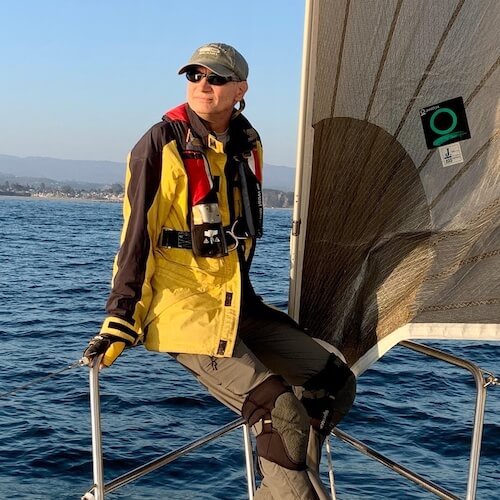

“It's time for my heart to be nurtured on one level yet contained on another. To go easy on me and to allow my feelings to be validated, not judged harshly. On the other hand, to let the heart rule with equanimity and not lead the mind and body around like a master.”
–Suzanne
“I spend time thinking of everything I am grateful for, and I try to develop my ability to express compassion for myself and others without reservation. I take time to do the things I need to do to keep myself healthy and happy. This includes taking experiential workshops, fostering relationships, and participating within groups which have a similar interest to become a more compassionate and fulfilled being.“
–Peter
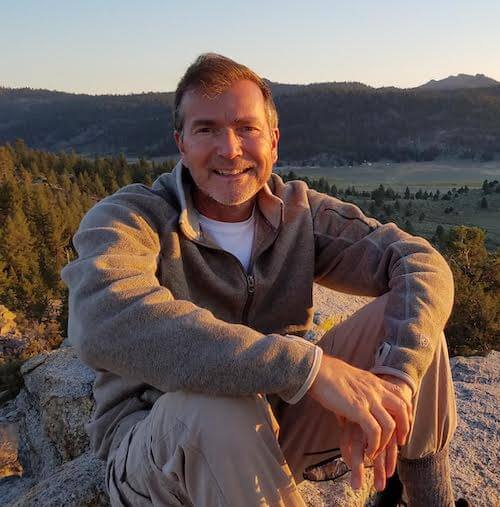
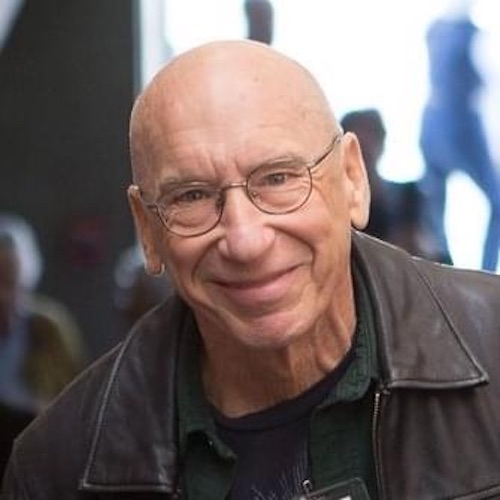
“Self-forgiveness for my own judgments. And oh yeah, coming to Esalen.”
–David B.
“Hmm, this is a tough one! I guess I take care of my heart through fostering relationships with people I feel connected to. Spending quality time with them (whether we're on the phone, through messages/letters, on Zoom, or in-person). Being there for them, listening to them, sharing what's going on with me, my struggles and my successes... like we do in the Esalen weekly Friends of Esalen Zoom sessions!”
–Lori

“I remind myself in many ways of the fact that " Love is all there is!" LOVE is the prize and this one precious life is the stage we get to learn our lessons. I get out into nature, hike, camp, river kayak, fly fish, garden, I create, I dance (not enough!), and I remain grateful for each day, each breath, each moment. Being in the moment, awake, and remembering the gift of life and my feeling of gratitude for all of creation.”
–Steven
“My physical heart by limiting stress and eating a heart-healthy diet. My emotional heart by staying in love with the world and by knowing that all disappointment and loss will pass.“
–David Z.
Today, September 29, is World Heart Day. Strike up a conversation with your own heart and as you feel comfortable, encourage others to do the same. As part of our own transformations and self-care, we sometimes ask for others to illuminate and enliven our hearts or speak our love language.
What if we could do this for ourselves too, even if just for today… or to start a heart practice, forever?

This Fall, Charles Eisenstein will be one of a number of featured speakers and artists participating in Esalen’s Benefit Weekend celebration. Charles is author of Sacred Economics and The More Beautiful World Our Hearts Know Is Possible and has taught workshops at Esalen, including participating in an upcoming Conversations on the Edge in September. His work focuses on themes of civilization, consciousness, money, and human cultural evolution. Charles shared with us news of his current work, including exploring the space between humanity’s old story of separation and what’s next.
eNews: We are excited to welcome you back to Esalen this October. Do you remember your first impression or experience of Esalen?
Eisenstein: Honestly, my first impression was of an institution trying to find its way, holding its origins and early history sacred while negotiating the realities of interfacing with the "real world." Such places enjoy a bubble of protection in their early days, within which they can grow. But at some point they go through a coming-of-age initiatory ordeal. My impression was that Esalen is going through that, facing questions of "Why are we here?" "What are we and what do we want to be?" I thought, "It is OK not to know. This land is special. It will carry you. Trust the process."
eNews: You write about your late 20s and experiencing a period of crisis and searching. What can you share of that experience – the dissolving of one world and the birthing of another?
Eisenstein: Gosh, it wasn't just my late 20s. It is a process that comes back again and again. The unraveling reaches one level, then there is a rest, and then it goes deeper. Programs of behavior and thought that were wholly unconscious rise to the surface through crisis. Do I then easily let go of them? No, usually I cling with all my might until circumstances force me to surrender. So don't look to me as the guy who went through his transformation a long time ago and is now in a more exalted and enlightened state than you are. I'm still in the thick of it.
eNews: On a larger scale, you talk about humanity in need of taking the Next Step. What does that look like?
Eisenstein: I don't know what it looks like. I see the "old story" (the story of separation) falling apart all around us. The story of the separate self, humanity separate from nature, the story of control, the story of scarcity... and everything built on it is crumbling. We are entering a "space between stories" in which the old answers, the old narratives, the old theories of change and maps of progress no longer serve. From that empty space, the Next Step will emerge. I don't know what it is, although I can see bits and pieces of what the world could be, in everything we call holistic, alternative, etc.
eNews: Tell us more about your upcoming project, The Revolution Is Love. How will that tie into your focus on the environment?
Eisenstein: I'm not sure if that is going to be the title after all. My starting point for this book is climate change. I think the standard narrative of climate change is severely flawed; in fact, it will lead us to more of the same, tremendous effort to very little effect. I'll give you just one snippet: the argument that we should do something about climate change or really bad things are going to happen to us. Well, if we need to rely on that argument, it is already too late. Imagine if you asked me, "Why should I feed and clothe my child?" and I said, "If you don't, you'll be arrested for neglect. Really bad things will happen to you." If you have to ask the question, there is already a problem. I think we need to look at that. What separates us from loving Earth and everything on it so much, that ecocidal action is unthinkable?
eNews: In your travels and public speaking, what surprises you most about those you meet? What comforts you?
Eisenstein: What gives me the most hope is the beauty, intelligence, caring, and courage of the people I meet, and especially the young people, who seem to be born into a level of consciousness that my generation had to struggle for decades to embody just partially.
eNews: Can you share with us a preview of what you’ll be addressing during your Esalen visit in October?
Eisenstein: I'll probably talk about some of the topics I've just discussed, but I will tune into the conversations and questions that are in the space – the zeitgeist of the event – and speak to that. The basic framing, though, will be the transition in our stories.
Learn more about this year’s Benefit Weekend.

“Remembering to be as self compassionate as I can and praying to the divine that we're all a part of.”
–Aaron
“Prayer, reading, meditation, walking.”
–Karen
“Erratically — which is an ongoing stream of practice to find peace.”
–Charles
“Try on a daily basis to be kind to myself and to realize that making mistakes is a part of the human condition. Learning from our mistakes is a journey. But it starts with compassion and caring. First for oneself.”
–Steve
“Physically: aerobic exercise, volleyball, ice hockey, cycling, sailing. Emotionally: unfortunately I have to work to ‘not care’ about people or situations which may end painfully. Along the lines of ‘attachment is the source of suffering’, so best to avoid it or limit its scope. Sad though because it could also be the source of great joy. Is it worth the risk?“
–Rainer


“It's time for my heart to be nurtured on one level yet contained on another. To go easy on me and to allow my feelings to be validated, not judged harshly. On the other hand, to let the heart rule with equanimity and not lead the mind and body around like a master.”
–Suzanne
“I spend time thinking of everything I am grateful for, and I try to develop my ability to express compassion for myself and others without reservation. I take time to do the things I need to do to keep myself healthy and happy. This includes taking experiential workshops, fostering relationships, and participating within groups which have a similar interest to become a more compassionate and fulfilled being.“
–Peter


“Self-forgiveness for my own judgments. And oh yeah, coming to Esalen.”
–David B.
“Hmm, this is a tough one! I guess I take care of my heart through fostering relationships with people I feel connected to. Spending quality time with them (whether we're on the phone, through messages/letters, on Zoom, or in-person). Being there for them, listening to them, sharing what's going on with me, my struggles and my successes... like we do in the Esalen weekly Friends of Esalen Zoom sessions!”
–Lori

“I remind myself in many ways of the fact that " Love is all there is!" LOVE is the prize and this one precious life is the stage we get to learn our lessons. I get out into nature, hike, camp, river kayak, fly fish, garden, I create, I dance (not enough!), and I remain grateful for each day, each breath, each moment. Being in the moment, awake, and remembering the gift of life and my feeling of gratitude for all of creation.”
–Steven
“My physical heart by limiting stress and eating a heart-healthy diet. My emotional heart by staying in love with the world and by knowing that all disappointment and loss will pass.“
–David Z.
Today, September 29, is World Heart Day. Strike up a conversation with your own heart and as you feel comfortable, encourage others to do the same. As part of our own transformations and self-care, we sometimes ask for others to illuminate and enliven our hearts or speak our love language.
What if we could do this for ourselves too, even if just for today… or to start a heart practice, forever?

This Fall, Charles Eisenstein will be one of a number of featured speakers and artists participating in Esalen’s Benefit Weekend celebration. Charles is author of Sacred Economics and The More Beautiful World Our Hearts Know Is Possible and has taught workshops at Esalen, including participating in an upcoming Conversations on the Edge in September. His work focuses on themes of civilization, consciousness, money, and human cultural evolution. Charles shared with us news of his current work, including exploring the space between humanity’s old story of separation and what’s next.
eNews: We are excited to welcome you back to Esalen this October. Do you remember your first impression or experience of Esalen?
Eisenstein: Honestly, my first impression was of an institution trying to find its way, holding its origins and early history sacred while negotiating the realities of interfacing with the "real world." Such places enjoy a bubble of protection in their early days, within which they can grow. But at some point they go through a coming-of-age initiatory ordeal. My impression was that Esalen is going through that, facing questions of "Why are we here?" "What are we and what do we want to be?" I thought, "It is OK not to know. This land is special. It will carry you. Trust the process."
eNews: You write about your late 20s and experiencing a period of crisis and searching. What can you share of that experience – the dissolving of one world and the birthing of another?
Eisenstein: Gosh, it wasn't just my late 20s. It is a process that comes back again and again. The unraveling reaches one level, then there is a rest, and then it goes deeper. Programs of behavior and thought that were wholly unconscious rise to the surface through crisis. Do I then easily let go of them? No, usually I cling with all my might until circumstances force me to surrender. So don't look to me as the guy who went through his transformation a long time ago and is now in a more exalted and enlightened state than you are. I'm still in the thick of it.
eNews: On a larger scale, you talk about humanity in need of taking the Next Step. What does that look like?
Eisenstein: I don't know what it looks like. I see the "old story" (the story of separation) falling apart all around us. The story of the separate self, humanity separate from nature, the story of control, the story of scarcity... and everything built on it is crumbling. We are entering a "space between stories" in which the old answers, the old narratives, the old theories of change and maps of progress no longer serve. From that empty space, the Next Step will emerge. I don't know what it is, although I can see bits and pieces of what the world could be, in everything we call holistic, alternative, etc.
eNews: Tell us more about your upcoming project, The Revolution Is Love. How will that tie into your focus on the environment?
Eisenstein: I'm not sure if that is going to be the title after all. My starting point for this book is climate change. I think the standard narrative of climate change is severely flawed; in fact, it will lead us to more of the same, tremendous effort to very little effect. I'll give you just one snippet: the argument that we should do something about climate change or really bad things are going to happen to us. Well, if we need to rely on that argument, it is already too late. Imagine if you asked me, "Why should I feed and clothe my child?" and I said, "If you don't, you'll be arrested for neglect. Really bad things will happen to you." If you have to ask the question, there is already a problem. I think we need to look at that. What separates us from loving Earth and everything on it so much, that ecocidal action is unthinkable?
eNews: In your travels and public speaking, what surprises you most about those you meet? What comforts you?
Eisenstein: What gives me the most hope is the beauty, intelligence, caring, and courage of the people I meet, and especially the young people, who seem to be born into a level of consciousness that my generation had to struggle for decades to embody just partially.
eNews: Can you share with us a preview of what you’ll be addressing during your Esalen visit in October?
Eisenstein: I'll probably talk about some of the topics I've just discussed, but I will tune into the conversations and questions that are in the space – the zeitgeist of the event – and speak to that. The basic framing, though, will be the transition in our stories.
Learn more about this year’s Benefit Weekend.

“Remembering to be as self compassionate as I can and praying to the divine that we're all a part of.”
–Aaron
“Prayer, reading, meditation, walking.”
–Karen
“Erratically — which is an ongoing stream of practice to find peace.”
–Charles
“Try on a daily basis to be kind to myself and to realize that making mistakes is a part of the human condition. Learning from our mistakes is a journey. But it starts with compassion and caring. First for oneself.”
–Steve
“Physically: aerobic exercise, volleyball, ice hockey, cycling, sailing. Emotionally: unfortunately I have to work to ‘not care’ about people or situations which may end painfully. Along the lines of ‘attachment is the source of suffering’, so best to avoid it or limit its scope. Sad though because it could also be the source of great joy. Is it worth the risk?“
–Rainer


“It's time for my heart to be nurtured on one level yet contained on another. To go easy on me and to allow my feelings to be validated, not judged harshly. On the other hand, to let the heart rule with equanimity and not lead the mind and body around like a master.”
–Suzanne
“I spend time thinking of everything I am grateful for, and I try to develop my ability to express compassion for myself and others without reservation. I take time to do the things I need to do to keep myself healthy and happy. This includes taking experiential workshops, fostering relationships, and participating within groups which have a similar interest to become a more compassionate and fulfilled being.“
–Peter


“Self-forgiveness for my own judgments. And oh yeah, coming to Esalen.”
–David B.
“Hmm, this is a tough one! I guess I take care of my heart through fostering relationships with people I feel connected to. Spending quality time with them (whether we're on the phone, through messages/letters, on Zoom, or in-person). Being there for them, listening to them, sharing what's going on with me, my struggles and my successes... like we do in the Esalen weekly Friends of Esalen Zoom sessions!”
–Lori

“I remind myself in many ways of the fact that " Love is all there is!" LOVE is the prize and this one precious life is the stage we get to learn our lessons. I get out into nature, hike, camp, river kayak, fly fish, garden, I create, I dance (not enough!), and I remain grateful for each day, each breath, each moment. Being in the moment, awake, and remembering the gift of life and my feeling of gratitude for all of creation.”
–Steven
“My physical heart by limiting stress and eating a heart-healthy diet. My emotional heart by staying in love with the world and by knowing that all disappointment and loss will pass.“
–David Z.
Today, September 29, is World Heart Day. Strike up a conversation with your own heart and as you feel comfortable, encourage others to do the same. As part of our own transformations and self-care, we sometimes ask for others to illuminate and enliven our hearts or speak our love language.
What if we could do this for ourselves too, even if just for today… or to start a heart practice, forever?